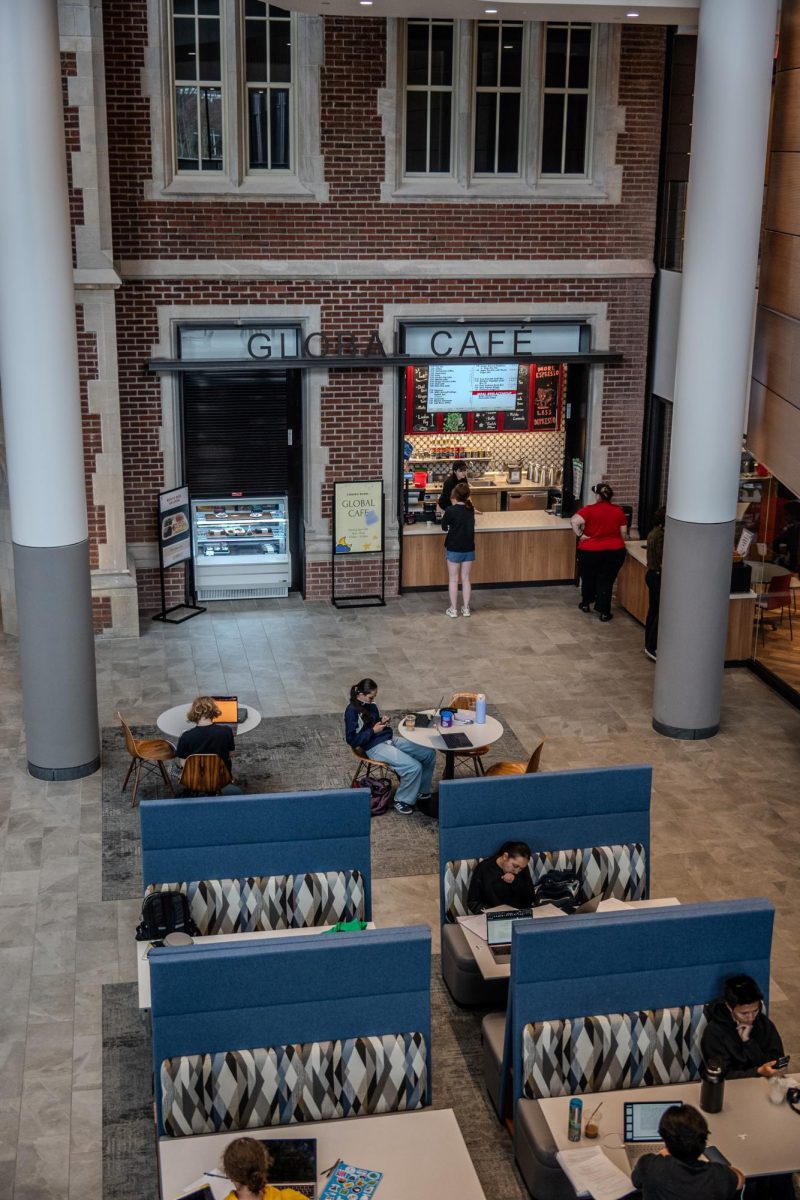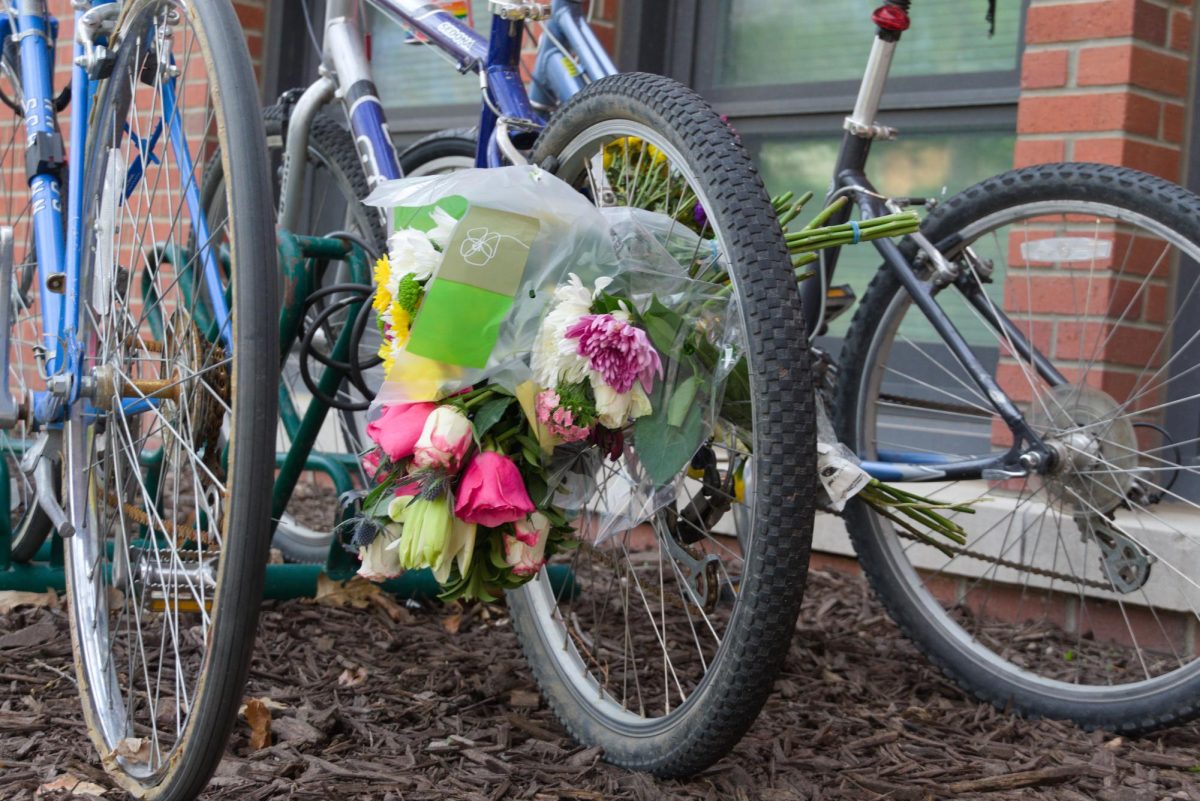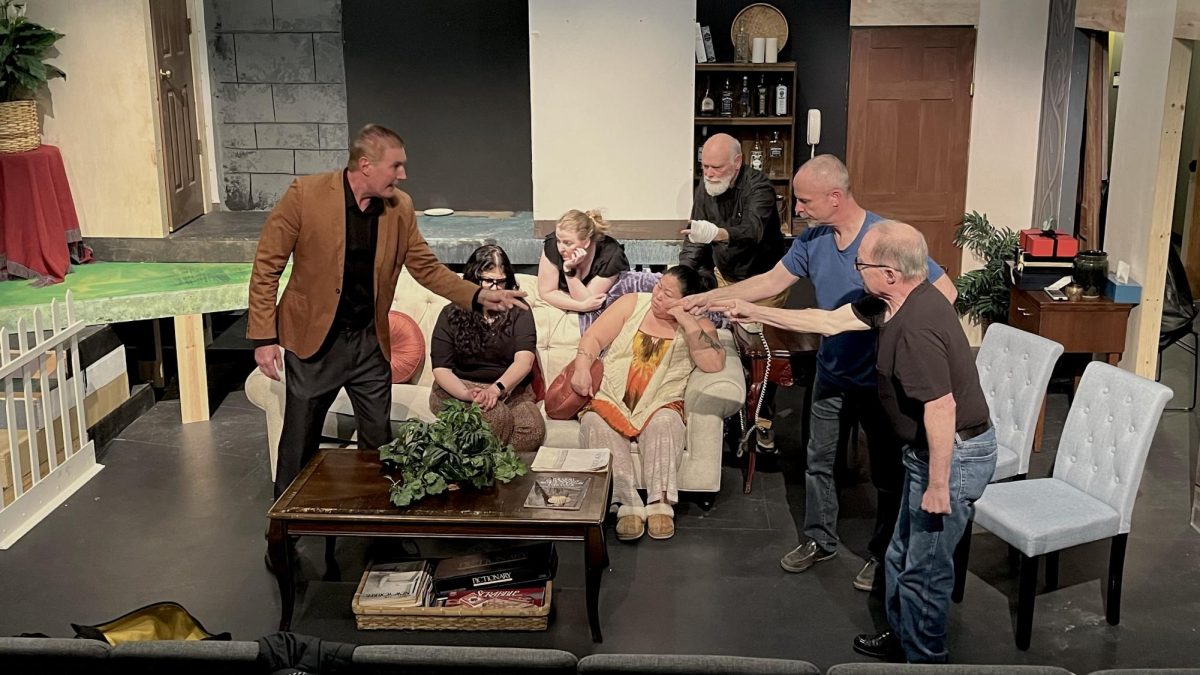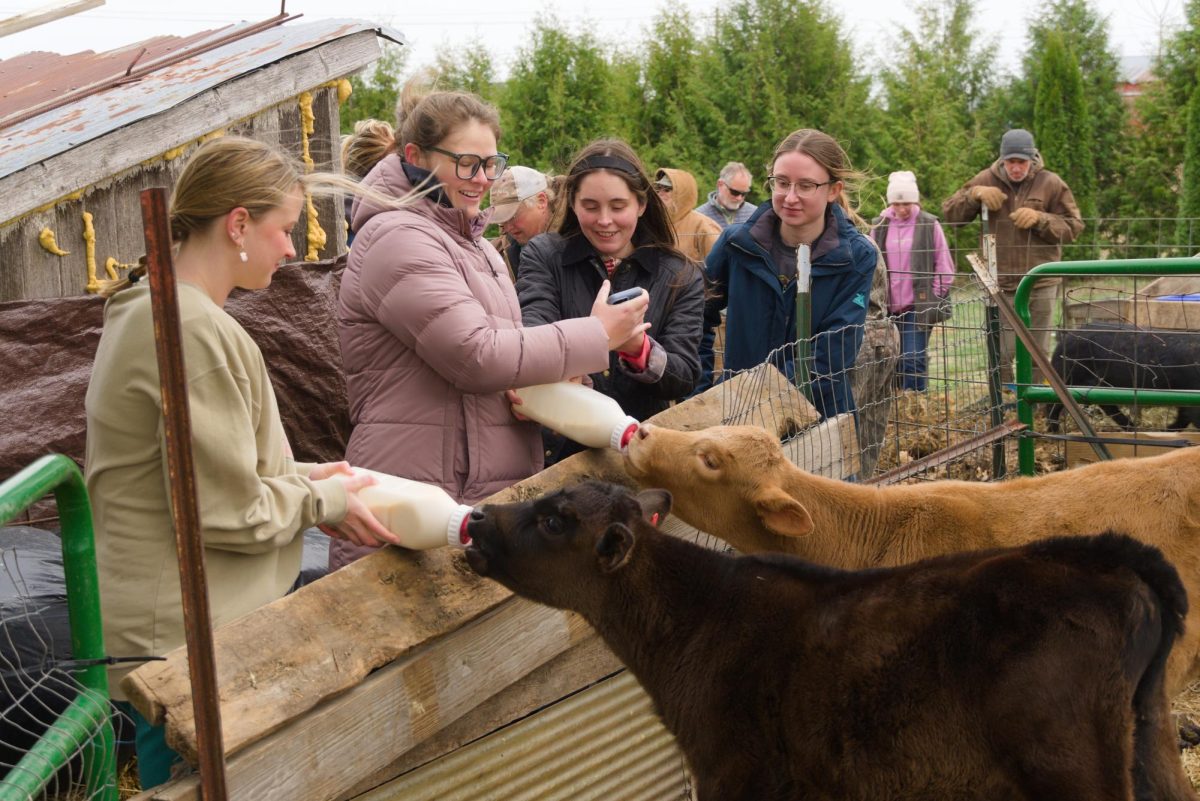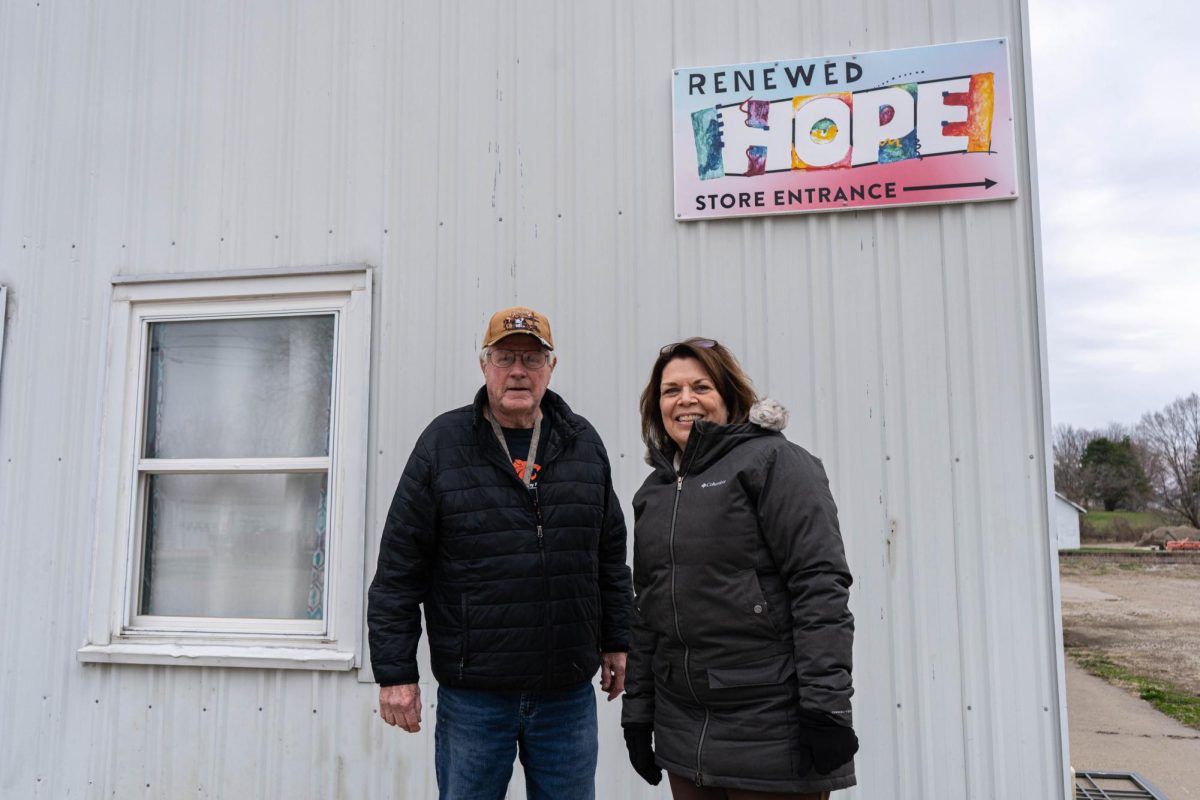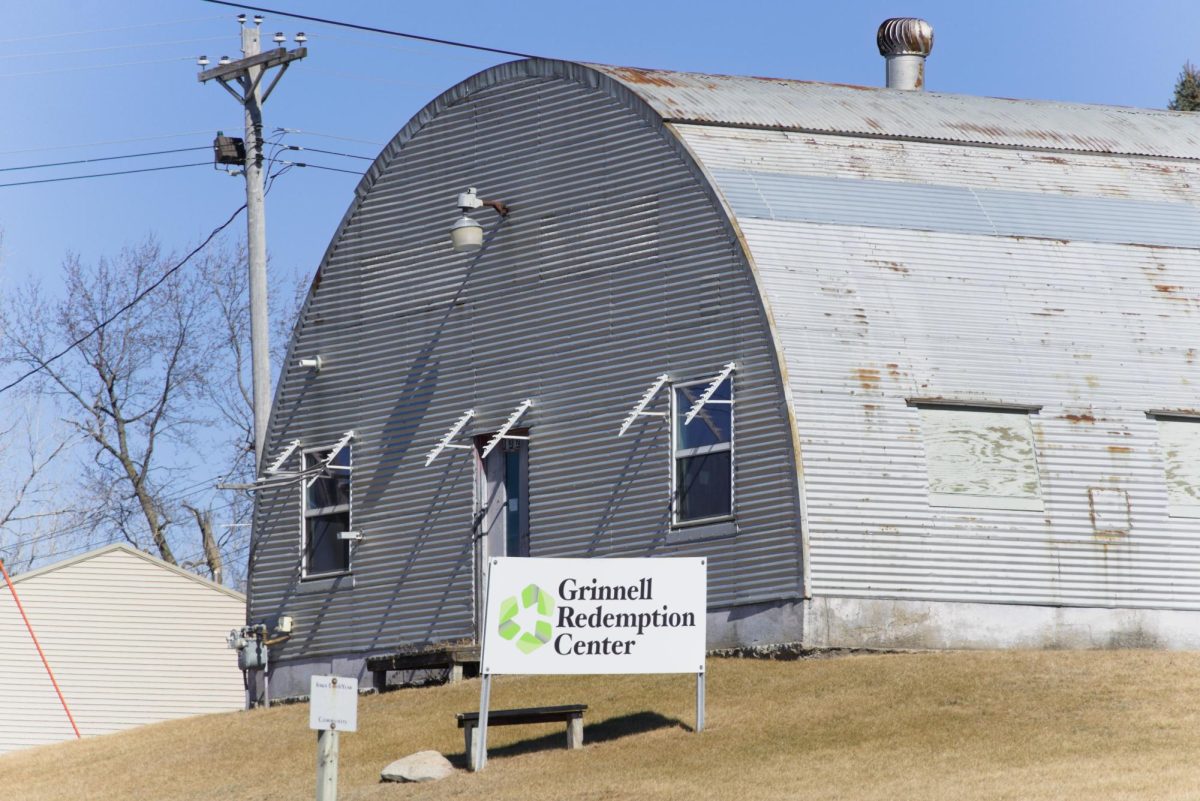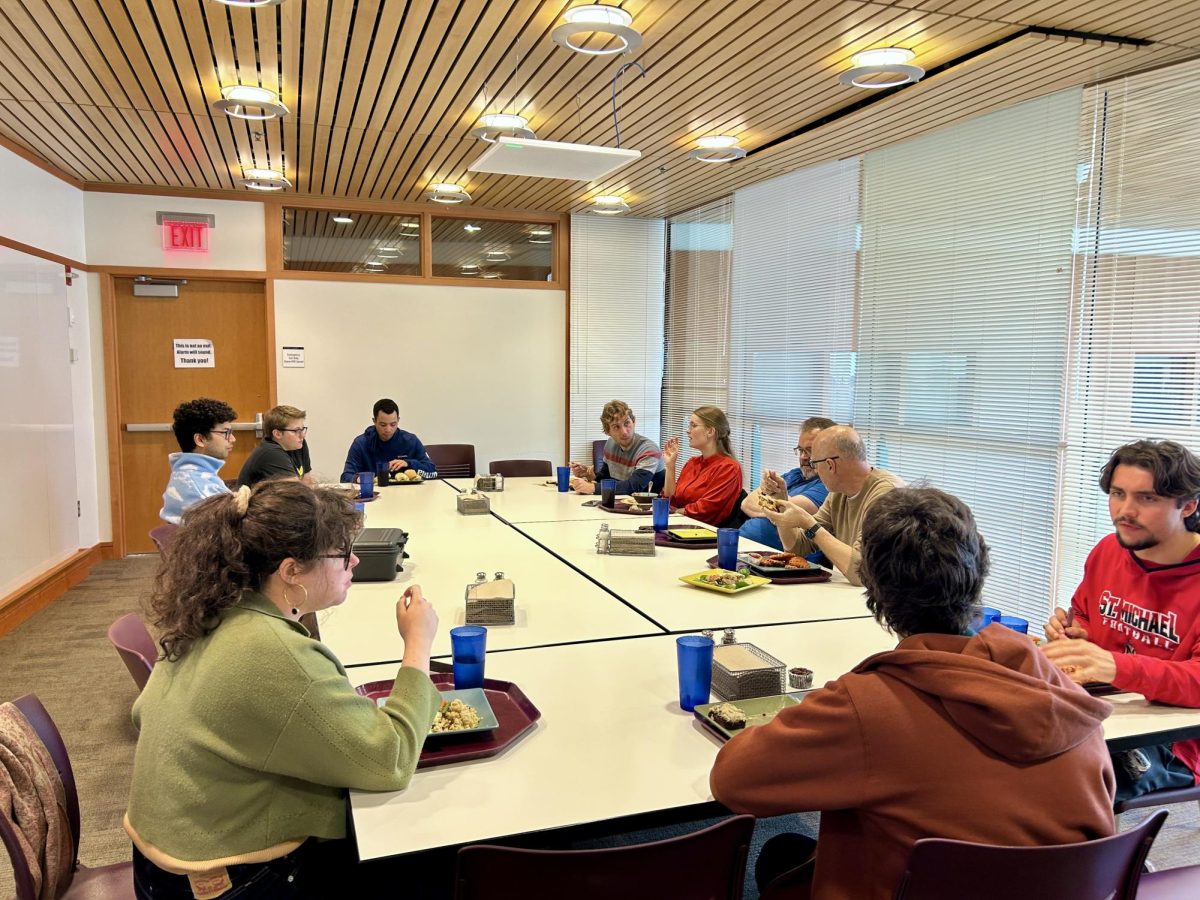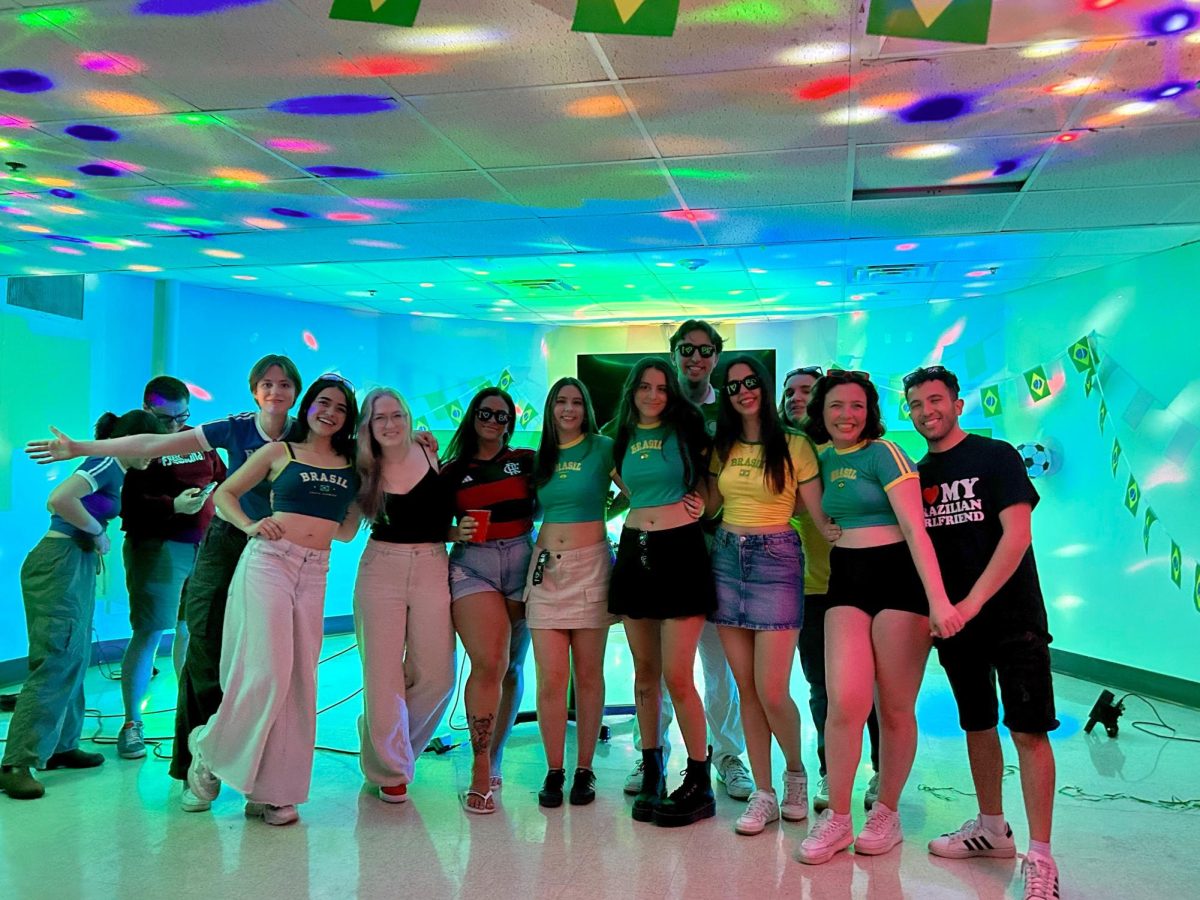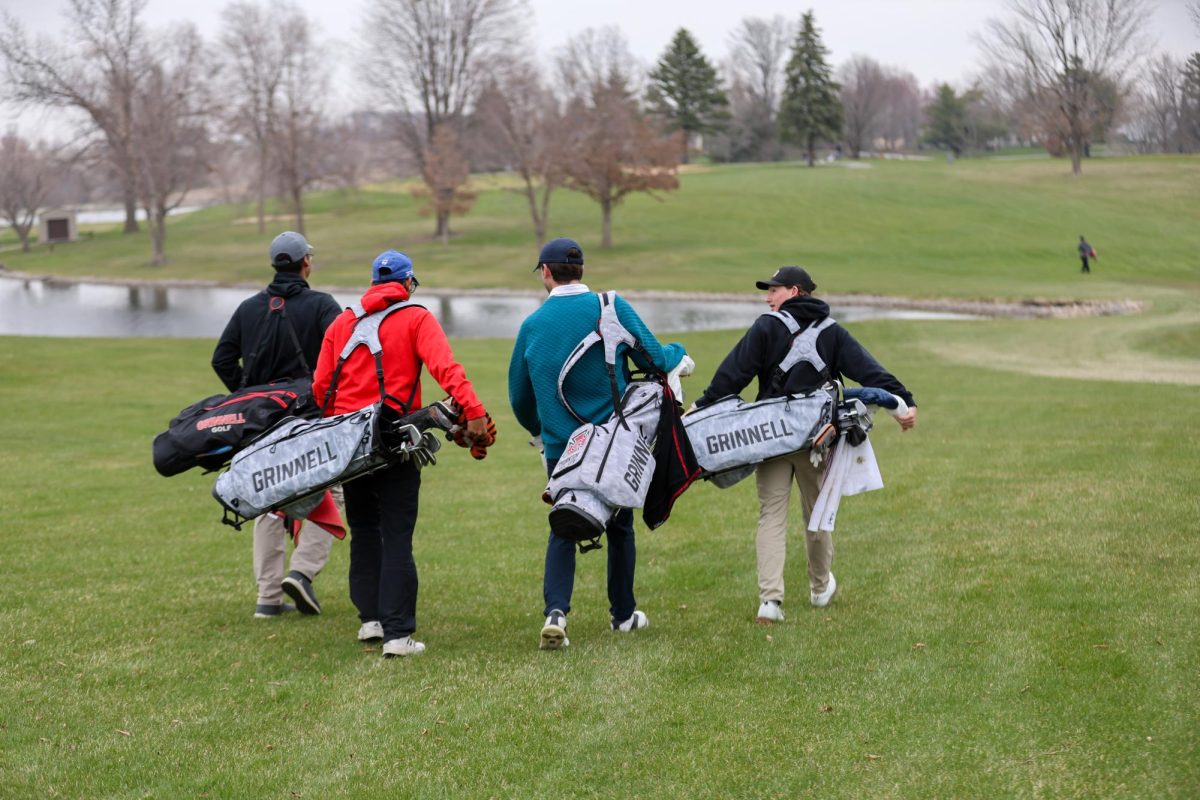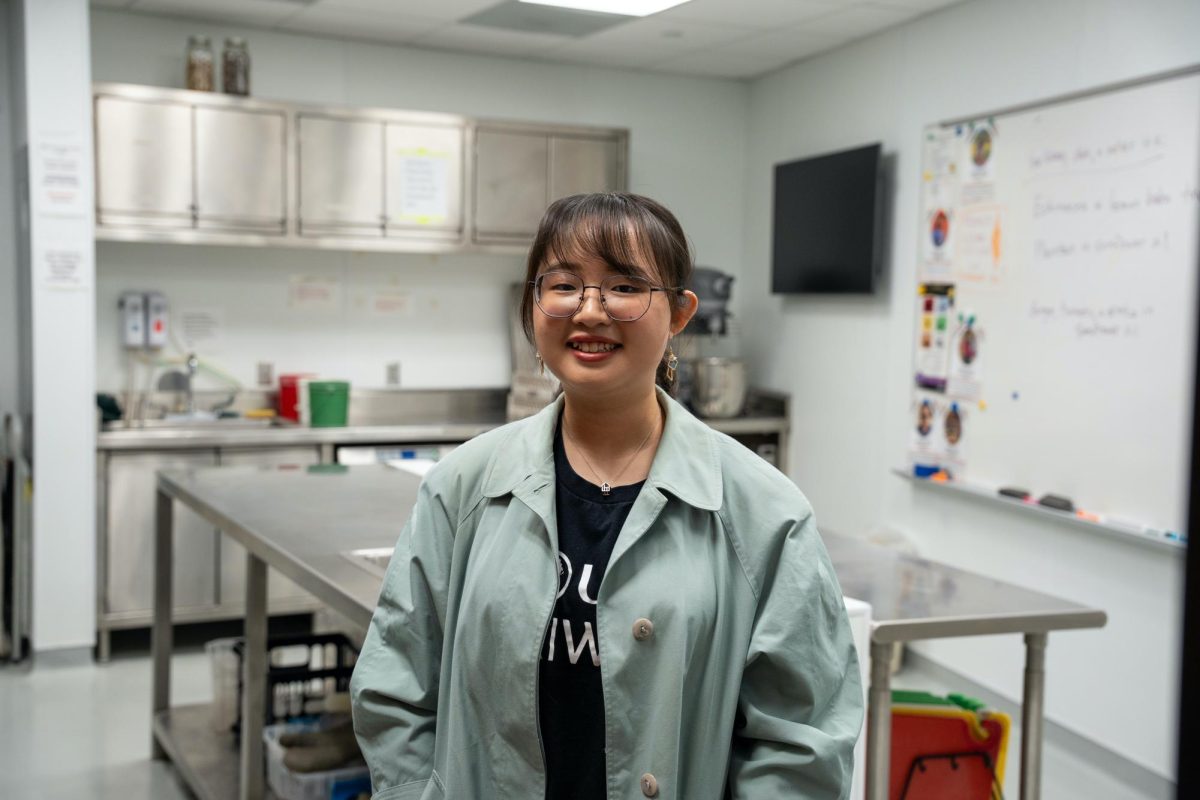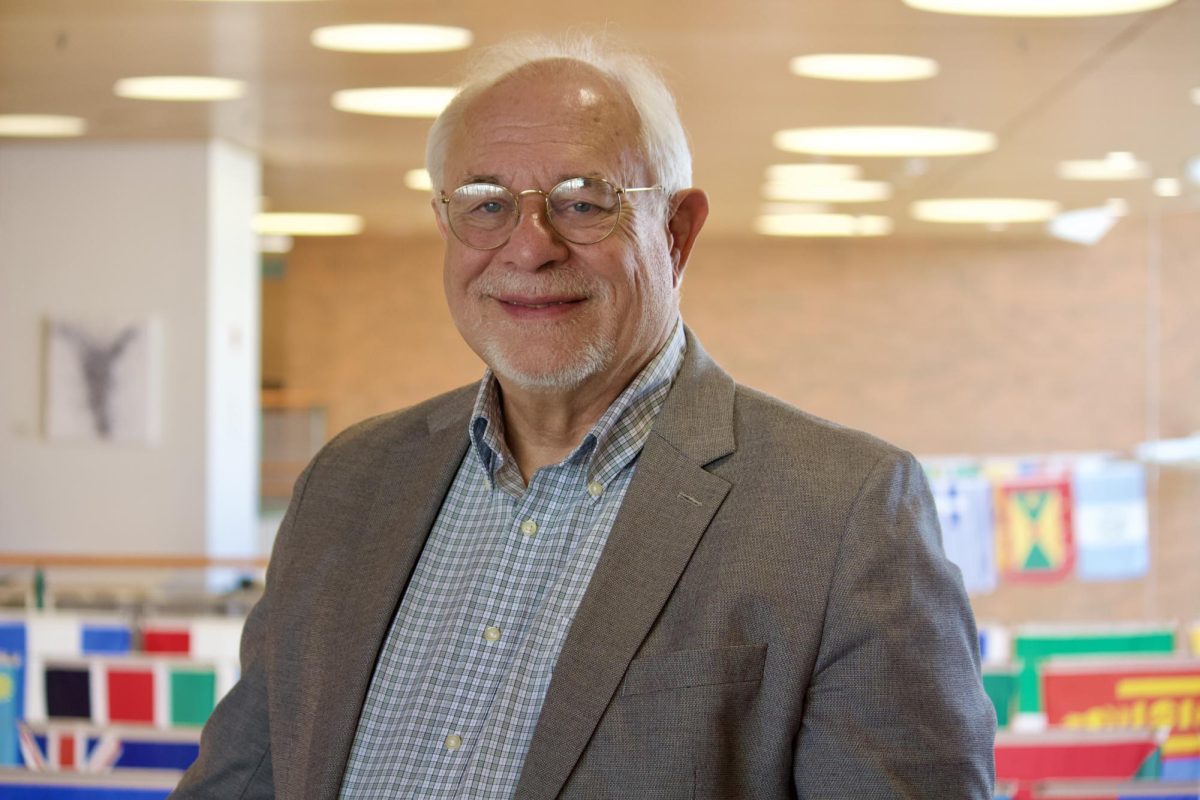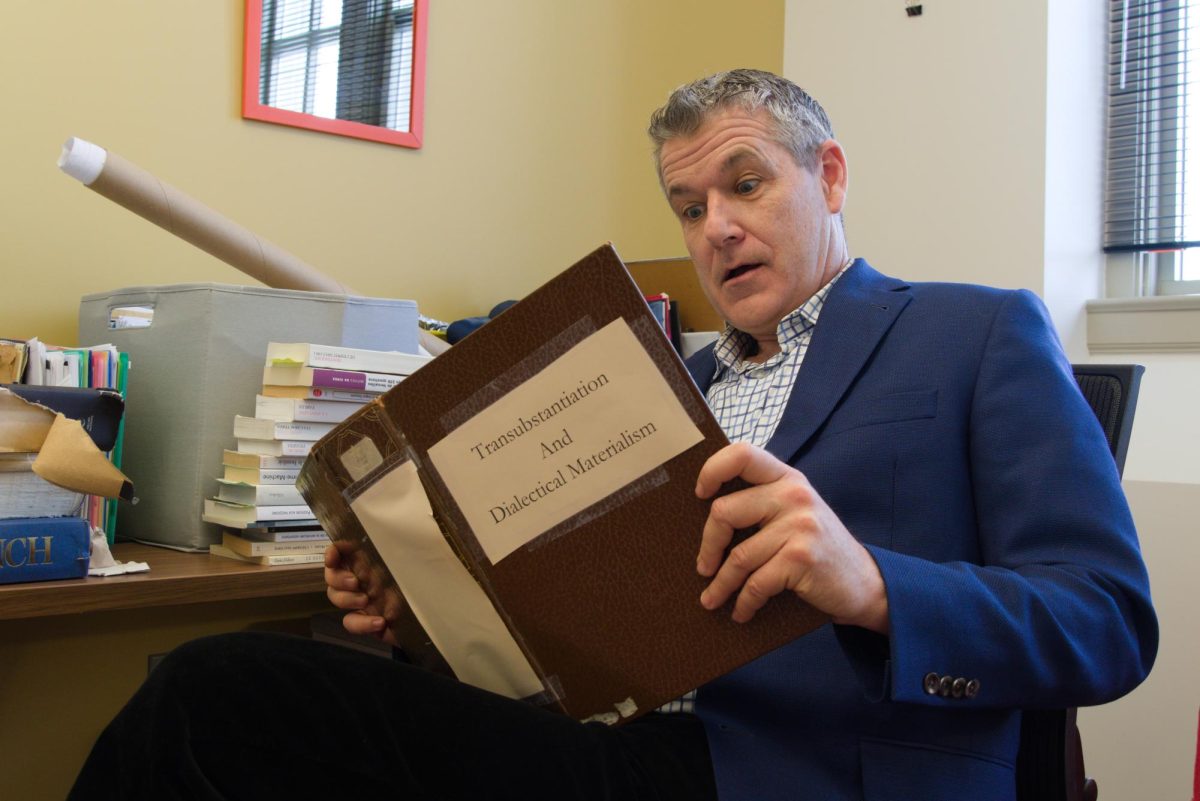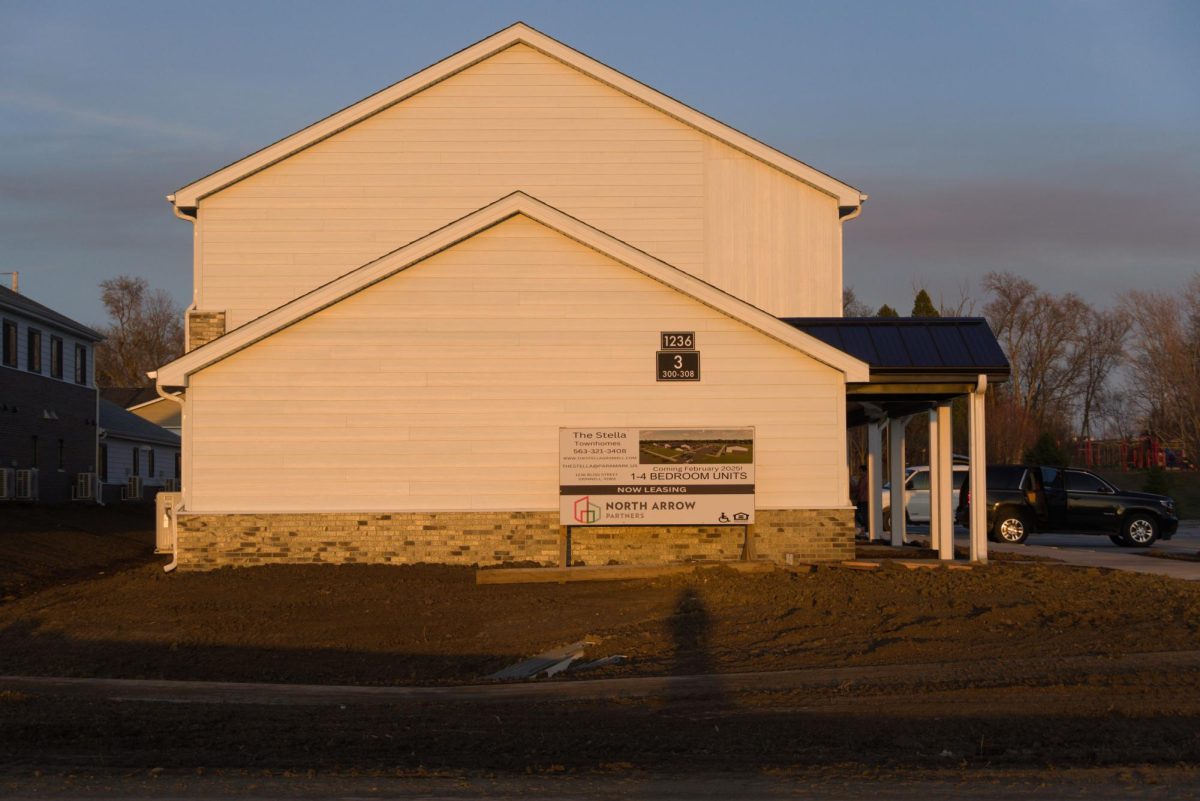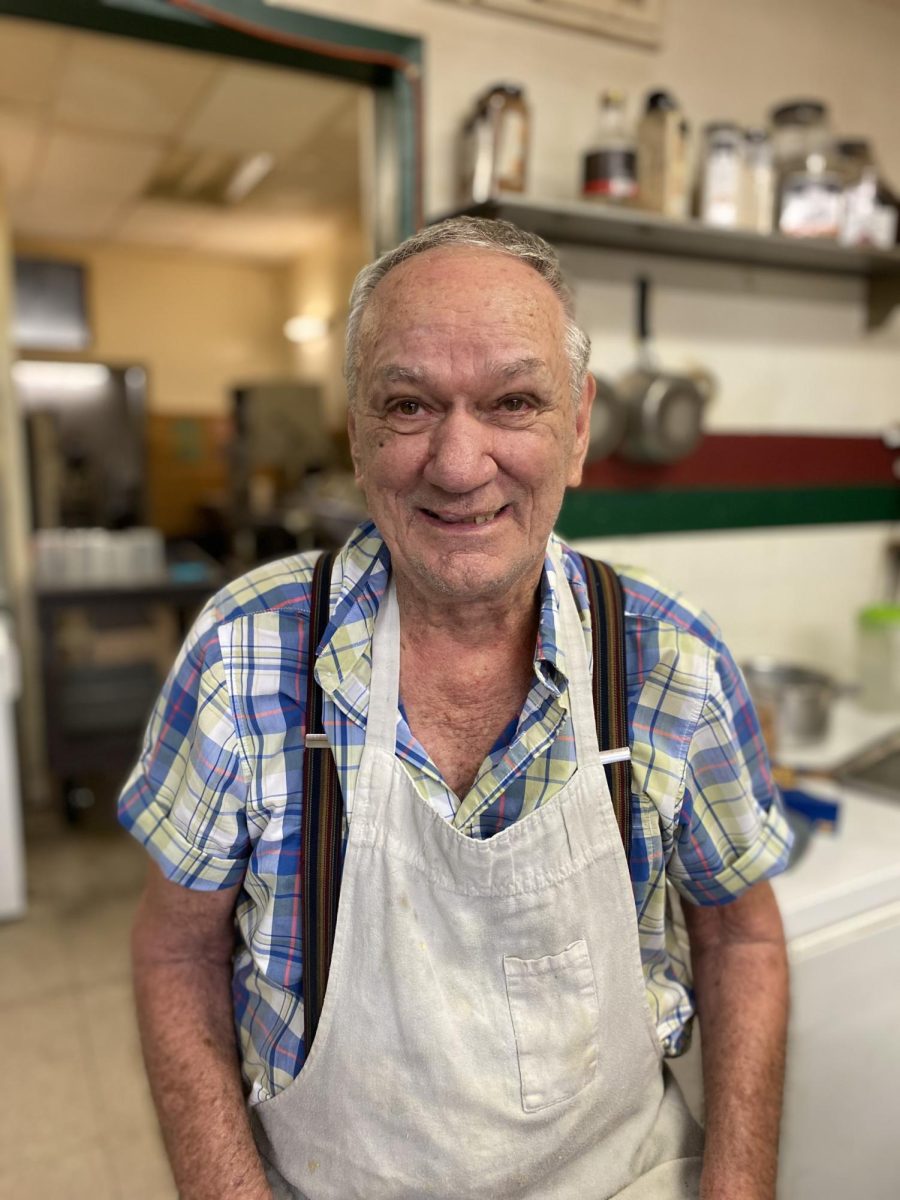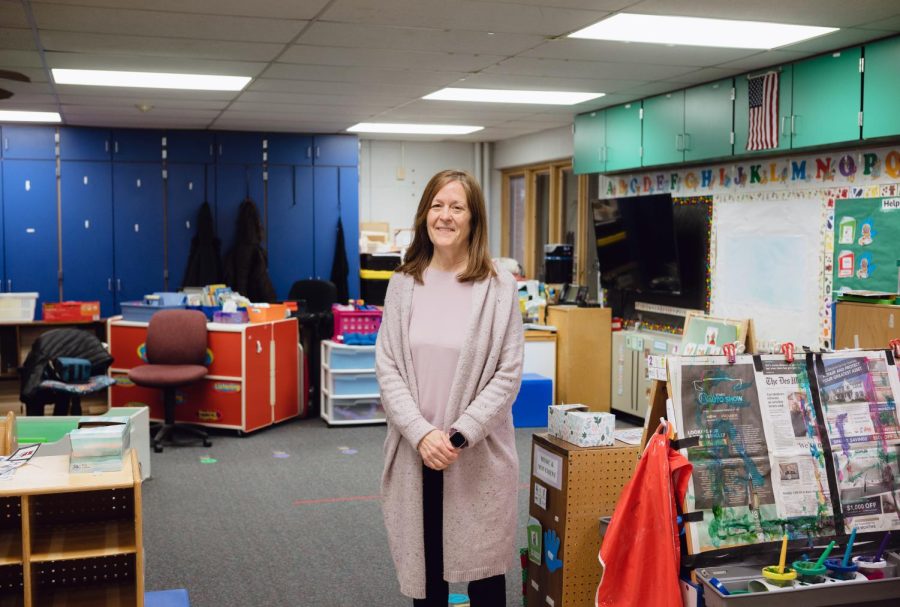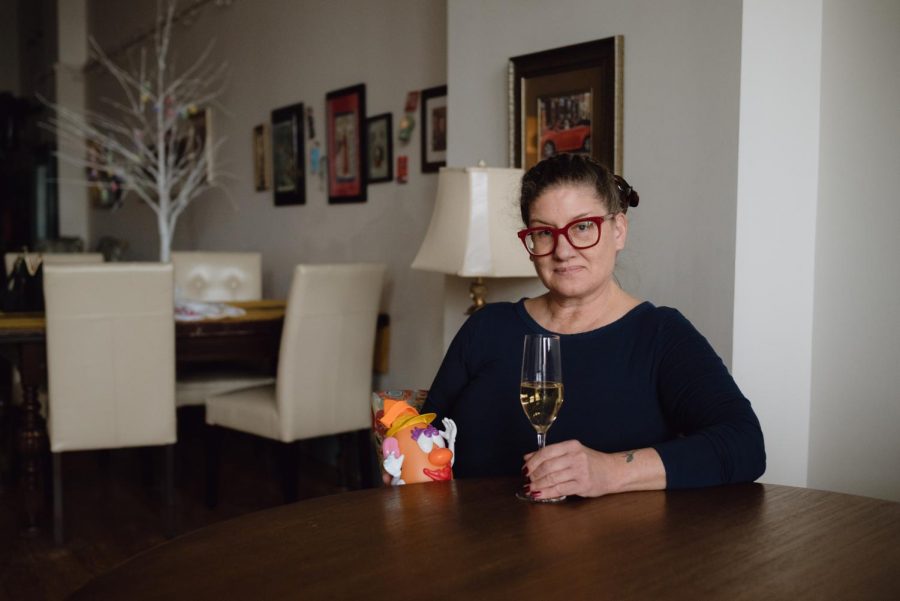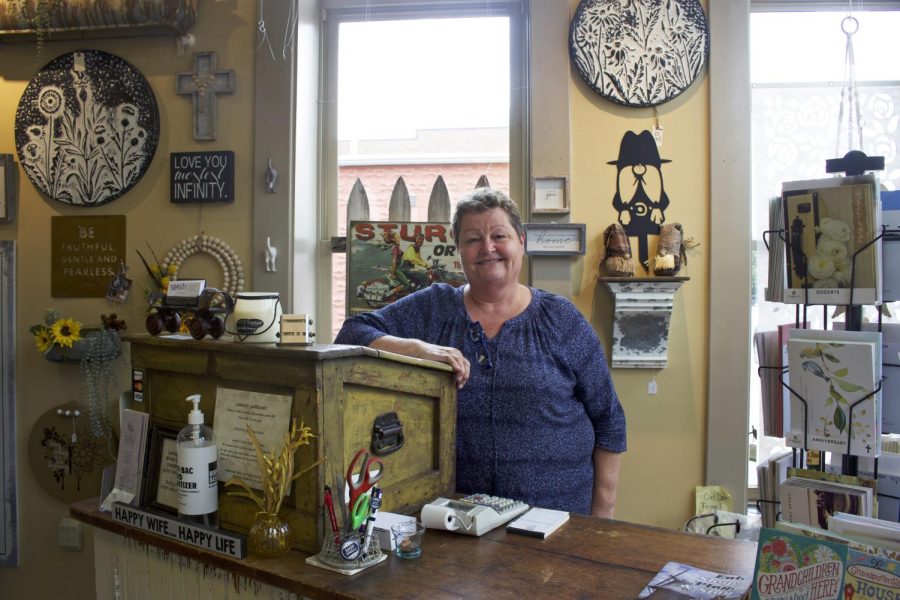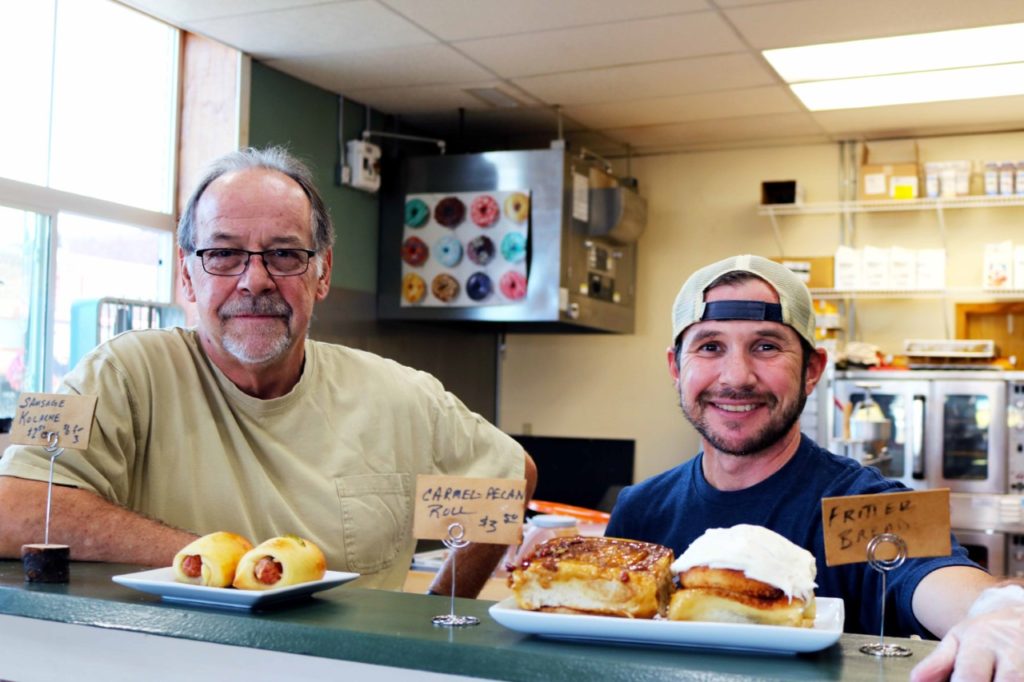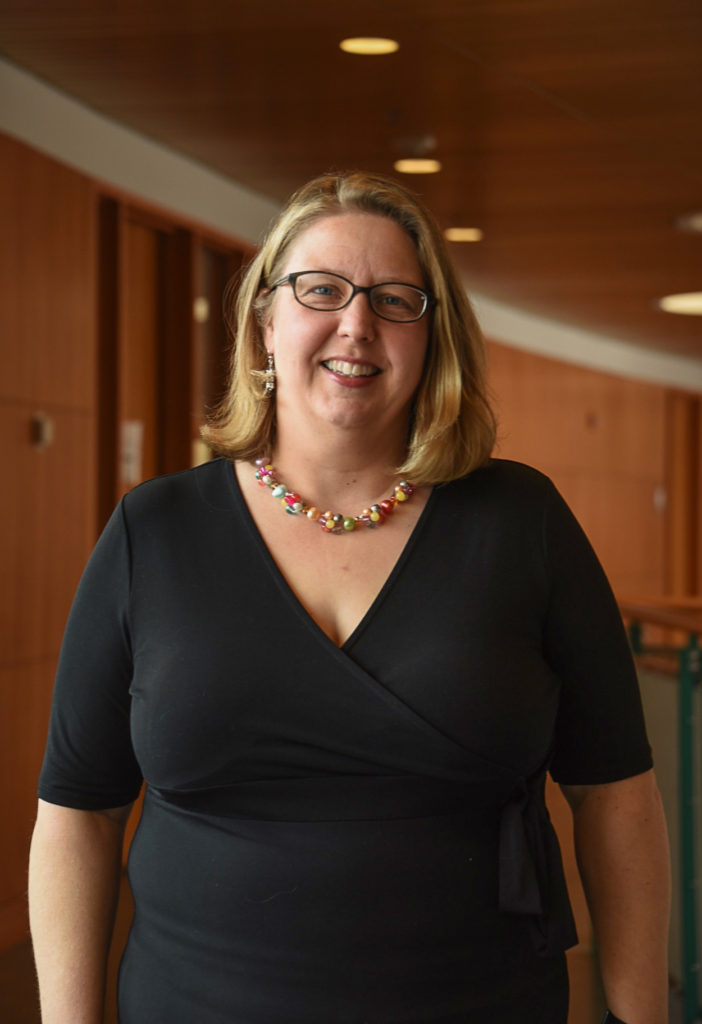Roxanna Coleman and I had spent the last three hours on a late spring day driving throughout Grinnell to local businesses including McNally’s Foods, Mid Iowa Community Action (MICA) and the Food Recovery Network (FRN) as spring semester 2024 came to a close. At each stop, we moved quickly through the storefronts into back rooms without even a second glance from staff. There, our boxes of treasure lay — cartons of potatoes, celery, bread and spring onion, that we promptly unpackaged and transferred into yellow buckets stored in the trunk of her car.
As the sun began to set, Coleman pulled into the driveway of a farm on 16th Ave., just around the corner from Spaulding Drive, near the solar garden that powers the College. Immediately we got to work unloading the trunk. No one was home, but cows began to moo in their barn.
“When they see the yellow buckets, they know they’re going to get a treat,” Coleman said.
This past spring, Coleman embarked on a mission to collect and redistribute unwanted food from businesses and food pantries. But what she gathered weren’t just leftovers — they were expired, inedible, scraped straight off customers’ plates at restaurants. Instead of feeding dumpsters, Coleman used the scraps to feed animals, at small local farms.
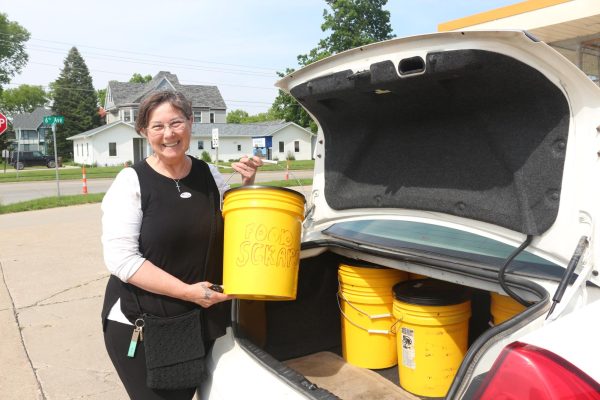
(Natalie Ng)
“It may not be something we want to eat, but the animals think it’s top-shelf,” she said. “The farmer told me she would gladly accept those items and one thing led to another.”
As I left, Coleman told me she was just “getting started.”
“I’m waiting for Fareway to respond — they have 355-gallon barrels that get thrown in the dumpster every morning,” she said. “I’m also going to contact Pizza Ranch, which has a buffet system and a lot of waste.”
Spring turned into summer, and due to a disability and an illness in her family, Coleman had to temporarily stop the rounds.
Not Over Yet
When I met Coleman again this November, it was clear the project was still on her mind.
“I felt useless when I stopped doing it,” she said. “Now that everything has blown over I’m back to thinking about, ‘Should I do this again?’”
In Coleman’s approach, local farmers feed animals with the produce she gives them. Their meat, milk and eggs then go to nonprofits, which return the food to needy community members. Deacon Dolphus Coleman Sr., Coleman’s husband of seven years, explained this was her way of thinking outside the box to reduce waste.
“She was distributing seven, eight hundred pounds of food a week,” he said.
Coleman said that she, like many Americans, relied on local food banks. When she went to the FRN, she said she was impressed by their efforts to reduce food waste. Eventually, they asked her if she could do something about leftovers that could not be given to people—donated bread that could only be kept for so long before it started to mold, or excess produce that was not good enough to put out for others to take.
She said, “I would go around town and try to find people that would take it. Most of the time it wasn’t a problem getting rid of it, sometimes it was. So I asked my friend Tommy, ‘You have any idea what I could do with this food that’s left?’ He suggested taking it to a farmer, to feed it to the pigs and the chickens.”
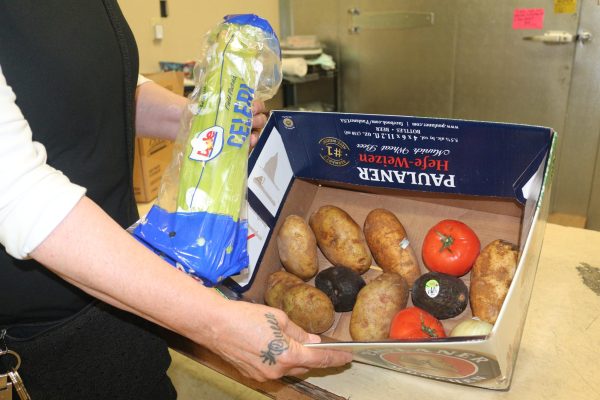
Tommy, in this case, is Tommy Hexter `21 — director of Grinnell Farm To Table and, most recently, Democratic candidate for District 53 of the Iowa House of Representatives.
“Roxanna doesn’t work for any organization,” he said. “But, she’s been involved with almost all of them. She’s done a lot of work that helps those organizations carry out their mission better.”
Hexter said Coleman’s work uncovers a larger need in Grinnell for more systemic support for grassroots programmes targeting food wastage and insecurity.
“It shouldn’t just be a volunteer thing,” he said. “It seemed like she was just filling up her car almost every day … but until they’ve actually got resources, it can’t get to the scale of sustainability it needs to have a big impact.”
No one else has stepped forward to carry on the initiative. Back in the spring, Coleman said she hoped college students could help her realize the potential she believed the project still held.
“She couldn’t find any younger volunteers willing to take over,” said Coleman Sr.. “But we’re just getting a little bit too old to continue on our own.”
All in Need
It was the middle of winter when Hexter first met the Colemans at Grinnell Farm To Table. His first impression was that they dressed “like homesteaders out on the prairie.” They were new to town.
He said, “They were so curious and happy and conversational. It was just very clear that they really want to be involved.”
For Coleman, Grinnell was her first opportunity to truly belong in a community. Though she was born in Kansas, she grew up in multiple states — Louisiana, Arkansas, Missouri and Iowa — and spent 33 years as a long haul truck driver, never settling in one place for long. Then she moved to Marshalltown, Iowa, where she worked long hours at a food co-operative, and where she met Coleman Sr..
Coleman Sr. said that it was only after Coleman committed to Christianity that she began shifting her focus towards community service, especially after she retired and moved to Grinnell. “She had always been involved in the food industry, but in Marshalltown we had a whole different mindset.”
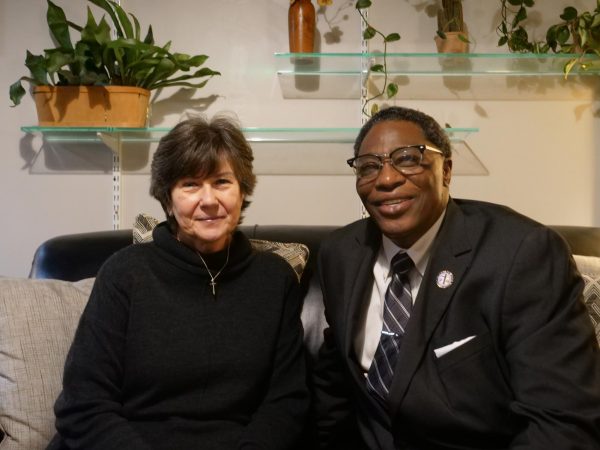
Before the animal feed project, Coleman had started a free pantry in her apartment building, driving 45 minutes to another pantry in Malcom, Iowa, to bring food back for residents unable to make the trip themselves.
“Her main goal was to help,” said Coleman Sr. “That was something that God probably told her to do in her heart, and she pursued it.”
Hexter added that Coleman went “above and beyond, all the time” for her neighbors. “I’ve seen when they have health problems, or if they are running low on food, she will drive them places, she’ll cook … if she knew families around town who she thought could use fresh produce, she would tell us, and then we could connect with them.”
“We’re all in need,” said Coleman. “This planet is in need, and we just consume, consume, consume, without thinking about tomorrow.”
A True Grinnellian
Coleman said that even if she won the lottery, she would still recycle anything she could and buy items used.
“You would be shocked at what I see sticking out of the dumpster, perfectly good,” she said. “I have pulled them out of the trash, cleaned them up, and taken them to Second Mile.”
Coleman Sr. described her as a minimalist. Her impact on others, however, is nothing but.
“This is hidden from a lot of the college community, but I would say 30 to 40 percent of this town is in need of some neighborliness,” said Hexter. “And Roxanna is the queen of mutual aid. She just wants to help, and I think that has really rippling impacts, because when I see someone else doing it, it makes me want to contribute more.”
Hexter asked Coleman to be first speaker at the launch of his election campaign back in April.
“Hearing her talk is inspiring,” he said. “I don’t think that she’s had a lot of outlets like that to speak publicly. But the people that do know who she is are deeply impacted by her.”
Coleman Sr. has started The Word Inc., a Christian nonprofit in Marshalltown that ensures equal access to opportunities for youth and adults in the community.
“Roxanna inspired me to do, not so much by words, but by actions,” he said. “She’s doing something, that’s her ministry. So what can I do, what can be my ministry?”
To Hexter, Coleman and Coleman Sr. are “huge blessings” to Grinnell. “They really believe in loving your neighbor as yourself and they display that in literally everything they do.”
“Coleman really exemplifies the spirit of Grinnell. As the College is looking at more civic engagement in the future, they should be working with folks like Coleman,” he said. “People that have shown grassroots commitment need to get more respect than just a figurehead or title person.”
Coleman had always envisioned a retirement by the coast. Now, she’s “thrilled” it never happened.
“I like being right here,” she said. “There’s something special about Grinnell, I can’t quite put my finger on it. There’s so much going on and so many people in this community that really seem to care.”
Her mantra — waste not, want not and keep it as local as possible.
“It’s about letting go of yourself and realizing that there are other people to care about, other than yourself,” she said.


